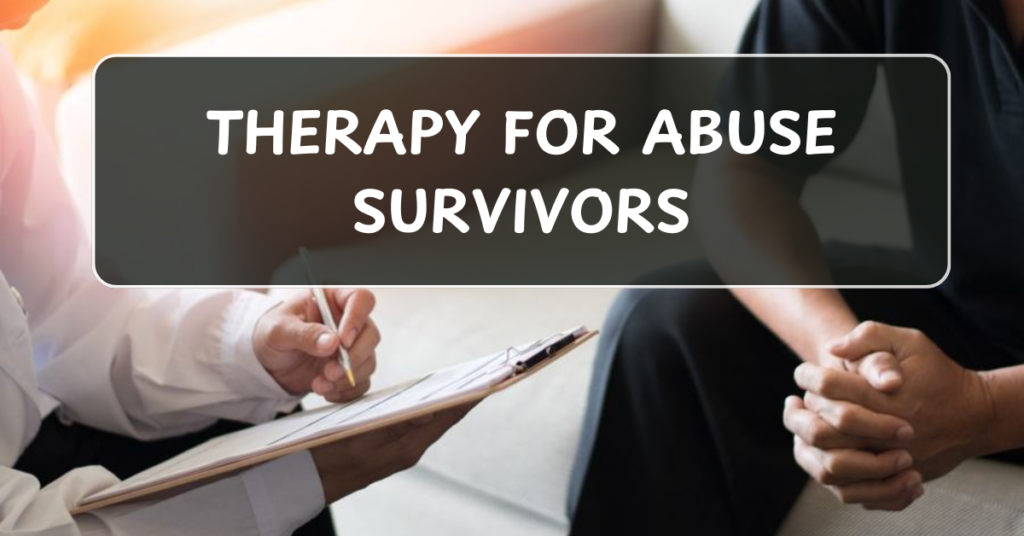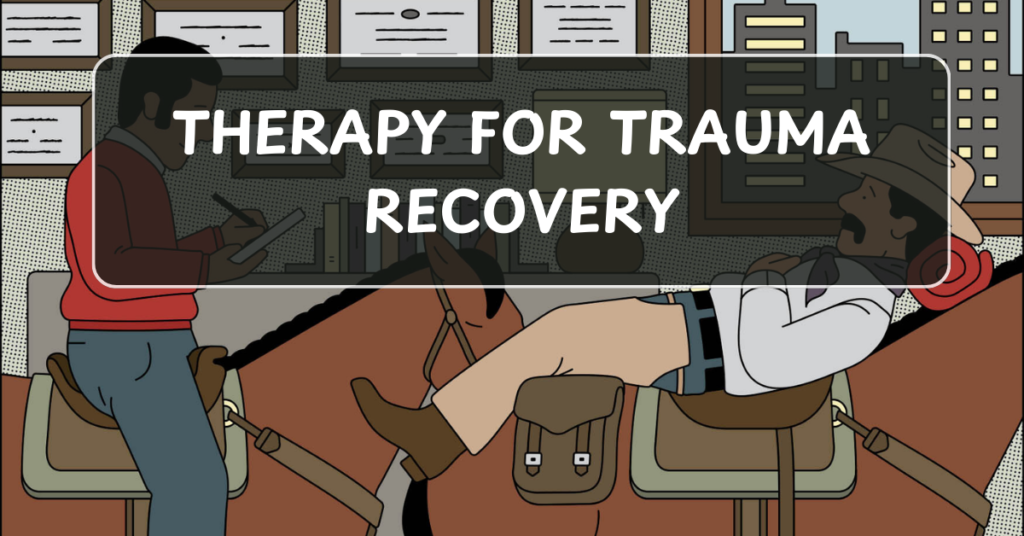
Survivors of abuse face a unique set of challenges as they work to rebuild their lives. Therapy plays a crucial role in helping individuals process their trauma, heal emotionally, and regain a sense of control over their lives. Whether the abuse was physical, emotional, or sexual, therapy provides a safe space for survivors to confront their pain and begin their journey toward recovery. In this article, we explore the various types of therapy available for abuse survivors and how they can be beneficial in the healing process.
1. Understanding the Need for Therapy for Abuse Survivors
- Why Therapy is Essential: Survivors of abuse often struggle with long-term emotional, psychological, and physical effects. Therapy provides them with the tools to manage these symptoms and start the healing process.
- Common Effects of Abuse: Survivors may experience anxiety, depression, PTSD, low self-esteem, trust issues, and difficulty forming healthy relationships. Therapy helps address these challenges by creating a structured environment for healing.
2. Types of Therapy for Abuse Survivors
- Cognitive Behavioral Therapy (CBT): CBT is one of the most effective therapies for trauma survivors. It helps individuals identify and change negative thought patterns that arise from past abuse. By reshaping these patterns, survivors can reduce symptoms of depression and anxiety and learn to cope more effectively with triggers.
- Trauma-Focused Therapy: Specifically designed for individuals who have experienced trauma, this therapy helps survivors process traumatic memories and emotions. It focuses on understanding how past abuse affects current behavior and mental health.
- Dialectical Behavior Therapy (DBT): DBT is particularly helpful for those who struggle with emotional regulation and self-destructive behaviors. It teaches skills for managing intense emotions, improving relationships, and reducing harmful coping mechanisms like substance abuse or self-harm.
- EMDR (Eye Movement Desensitization and Reprocessing): EMDR is a unique form of therapy that involves guided eye movements while recalling distressing memories. It helps reprocess traumatic experiences and reduce their emotional intensity.
- Group Therapy: Group therapy provides survivors with a supportive environment where they can share their experiences and learn from others who have gone through similar struggles. It reduces feelings of isolation and promotes healing through community support.
- Somatic Therapy: Focuses on the connection between the mind and body, somatic therapy helps survivors release stored trauma in the body through physical movement, breathing exercises, and body awareness techniques.
- Art Therapy: Art therapy allows survivors to express emotions they may have trouble articulating with words. Creating art can provide a non-verbal outlet for feelings of pain, fear, and sadness.
3. The Healing Process: What to Expect in Therapy
- Building Trust: For survivors of abuse, trust can be difficult to establish, especially with authority figures like therapists. The first step in therapy is building a strong, trusting relationship with the therapist, ensuring that the survivor feels safe and supported.
- Identifying and Processing Trauma: Therapy often involves confronting painful memories and emotions. This process is done at a pace that feels manageable for the survivor. The goal is to allow survivors to process their trauma in a safe and controlled environment.
- Learning Coping Mechanisms: Survivors are taught healthy coping mechanisms to deal with stress, triggers, and emotional overwhelm. These skills help individuals manage their mental health and maintain stability during the healing process.
- Empowerment and Rebuilding Self-Worth: Therapy helps survivors reconnect with their sense of self-worth and identity. By understanding the impact of the abuse and gaining new insights, survivors can regain control over their lives and rebuild their self-esteem.
4. Overcoming Barriers to Therapy for Abuse Survivors
- Fear of Retraumatization: Some survivors may fear that revisiting their traumatic experiences in therapy could cause additional harm. A trained therapist will help survivors navigate this process gently, ensuring they feel supported and in control.
- Accessing Resources: Not all survivors have easy access to therapy, whether due to financial constraints, lack of resources, or geographic limitations. Many therapists offer sliding-scale fees, and some organizations provide free counseling services for abuse survivors.
- Cultural and Societal Barriers: Stigma surrounding therapy and mental health can prevent survivors from seeking help. It’s important for therapists to create culturally sensitive approaches and help individuals feel comfortable accessing care.
- Supporting Survivors in Crisis: Some survivors may be in immediate crisis and need urgent support. In such cases, therapists or crisis intervention services can provide the immediate care needed before engaging in long-term therapy.
5. Benefits of Therapy for Abuse Survivors
- Emotional Healing: Therapy provides a safe and supportive environment where survivors can work through their emotional pain and begin to heal.
- Reduced Anxiety and Depression: Therapy can help alleviate common symptoms such as anxiety and depression by providing survivors with tools to cope more effectively and change negative thought patterns.
- Improved Relationships: As survivors rebuild their sense of self-worth and trust, they can develop healthier relationships and improve their interpersonal dynamics.
- Empowerment and Self-Discovery: Therapy helps survivors rediscover their strengths, fostering a sense of empowerment and self-knowledge that is crucial for long-term healing.
6. Support for Therapy: Other Helpful Resources
- Support Groups: Joining a support group for abuse survivors can provide additional comfort and help individuals feel less isolated in their experiences.
- Hotlines and Crisis Centers: If a survivor is in immediate danger or needs urgent support, hotlines and crisis centers are available to provide 24/7 assistance.
- Online Therapy Platforms: Some survivors may prefer online therapy, which can provide more anonymity and flexibility. Many platforms offer video or chat therapy options for individuals who are unable to attend in-person sessions.
- Books and Self-Help Resources: Survivors can also benefit from reading books about healing from abuse or using self-help tools to complement their therapy.
7. Conclusion: Empowering Survivors to Heal
Therapy is a vital tool for survivors of abuse to heal emotionally, regain control of their lives, and rebuild their self-worth. By exploring different types of therapy and finding the right approach for their needs, survivors can begin their journey toward recovery. Healing from abuse takes time, but with the right support, survivors can move beyond their trauma and lead fulfilling, empowered lives. If you or someone you know is a survivor of abuse, seeking therapy can be the first step toward healing and reclaiming your strength.


